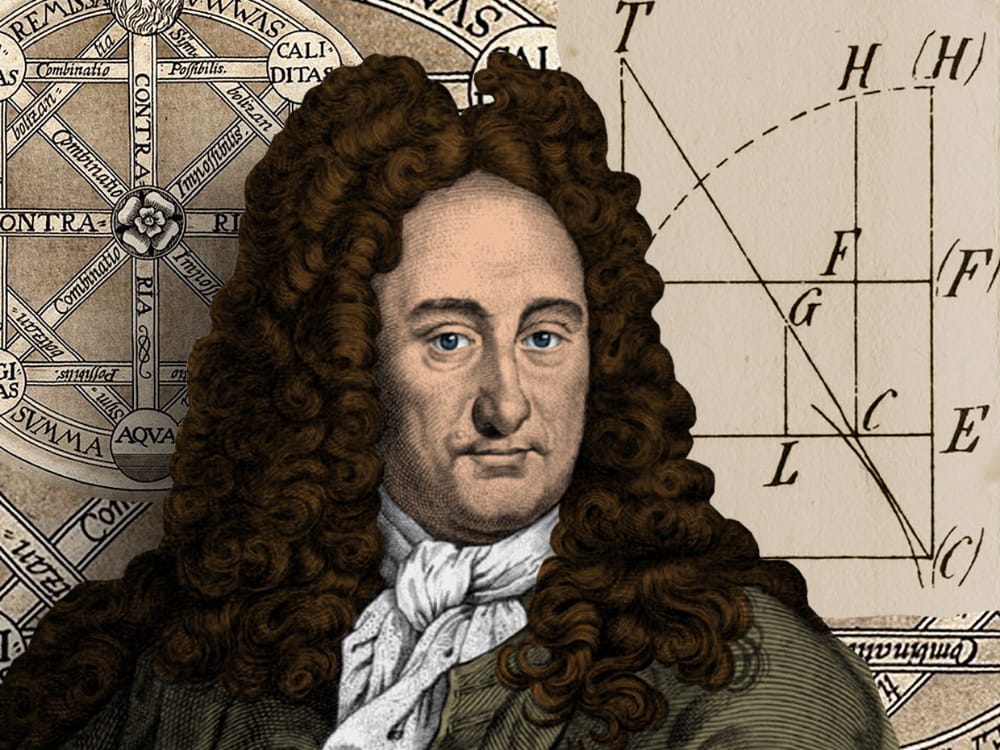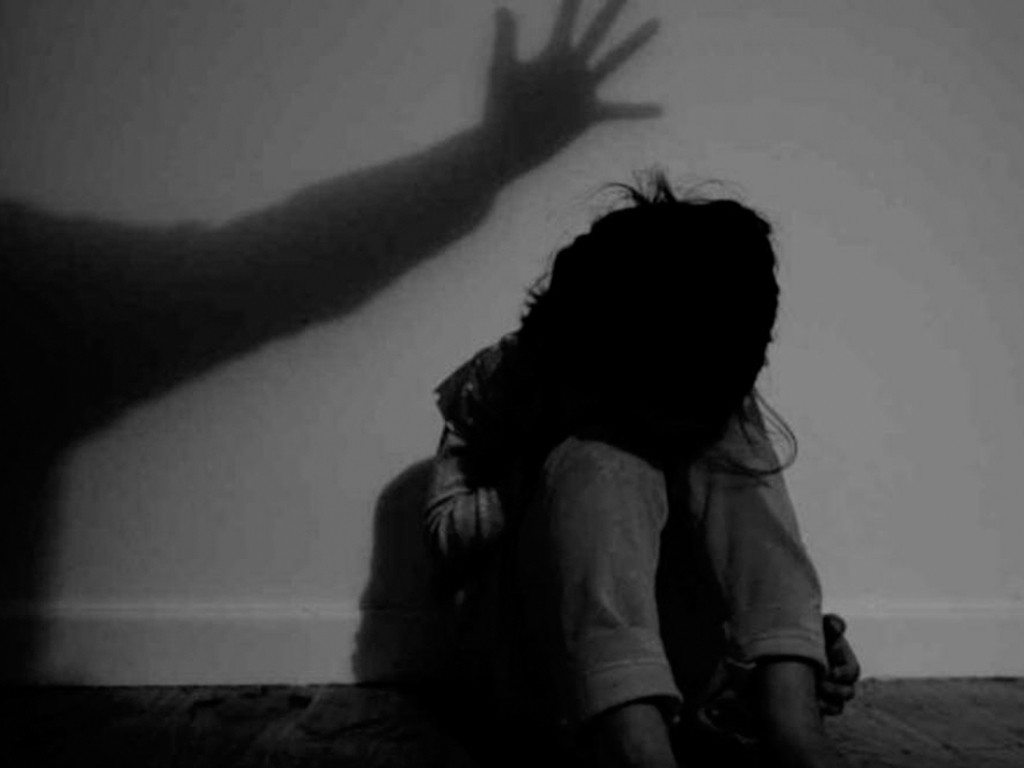Author: Zaarain Baloch
More often than not, one cannot criticise religious dogmatism without stumbling into this seemingly profound but actually implausible remark: Morality originates from religion. Without religion, claim the Divine Command Theorists (dcts), human society would crumble into a chaotic farrago. The right would be indistinguishable from wrong; evil will prevail over good. Rape, murder, torture, robbery and countless other heinous crimes would be ubiquitous. Morality will be a mere reflection of peoples’ desires. The global civilization will morph into an amoral dystopia and would eventually destroy itself – either by evoking the divine’s wrath or through its own injustice and cruelty.
This sort of thinking – that humans can only be moral by following God’s commandments – has existed for tens of centuries. This idea is deeply intertwined with almost every religion, especially the monotheistic faiths. Hundreds of years of indoctrination has led us to believe that religion is the only source of morality, and that it is impossible to be good without subscribing to God’s commands. We’ve been told that all the ills of society – like inequality and wanton teen pregnancies – are the direct results of our amorality. Murder is heinous; rape is evil; fornication is a sin; homosexuality is ‘unnatural’; theft is wrong. Why? Because God has said so in the holy scriptures – these are the unquestionable judgements of God that must be followed. But is it the case? Does our sense of right and wrong stem from religion? Or is it the result of a more subtle, a more elegant natural process? Is morality even possible without God?
Before getting into any detailed discussion on the subject, I must give a concise and yet an overarching definition of morality. In simple terms, morality is the distinction between good and evil; it is a set of values that buttress our entire society and guide us throughout our lives. These values give meaning to our existence, and they set us apart from other species. All quandaries of the human society, whether to allow same-sex marriages or not, for instance, are weighed in the balance of ethics, juxtaposed against these moral precepts and then handled accordingly.
Two essential pillars of morality are empathy and justice. Obviously morality is much more complex than this, but these two phenomena serve as the bedrock of our moral values. Without them, not much would be left. Empathy is the ability to understand and share the feelings of others. It is this phenomenon that prompts you to approach a weeping child and comfort him; it enables you to ward off the mischievous kids from beating a dog; it propels you to share the grief of a fellow human; it causes you to carry a placard and participate in a protest against the rape of a seven-year-old child. It would be prudent to clarify that empathy is not a human monopoly, other mammals have a similar capability of understanding and sharing the feelings of their conspecifics. Rats, for example, have been proved to behave altruistically. While choosing between food and releasing their other companion, most of the rats would choose to first liberate their caged companion and then share the food. Macaques would rather starve themselves to death than to obtain food by the expense of electrocuting their fellow monkeys. Chimpanzees are known to console the loser of a chimp fight.

Because it has been evolving throughout history, justice is a somewhat complex phenomenon; it is the principle that the well-being of everyone should be preferred over other material gains and that everyone should receive their due rights. In humans, it is evident. We abhor unfair treatment and struggle for our rights – either by peaceful negotiations or, in worst cases, through violence. Fairness, an impartial and unbiased treatment, and reciprocity, repaying a favour after receiving one, are deeply associated with justice. Like empathy, justice is also universal throughout the mammalian kingdom. In Capuchin monkeys, for example, it has been shown that unequal pay is strictly rejected. In an experiment, the primatologists placed two capuchin monkeys in a cage and gave each a stone. The monkeys were then trained to give the stone to the primatologist and receive a cucumber as a reward. The monkeys happily handed their stones and got their cucumbers. Then, the primatologists changed the rewards: one of the monkeys was given a grape, a more delicious fruit, while the other one was still paid with cucumbers. To this unequal behaviour, the low-rewarded monkey threw a tantrum and started rattling the cage, throwing the food around and making sounds. In rare cases, the highly-rewarded monkeys rejected their rewards unless their conspecific was paid a similar reward as well. Such experiments firmly conclude that justice and fairness are not limited to humans, but are omnipresent throughout the mammalian kingdom.
God, the Arbitrary Lawgiver
Well over 2000 years ago, the Greek philosopher Plato demonstrated the logical independence of morality from religion. In his dialogue Euthyphro, Plato raises a profound question about the nature of human morality. He propounds two propositions: Are right actions right because God commands them? Or Are right actions commanded by God because they are right? These propositions, now known as the ‘Euthyphro Dilemma‘, pose a serious threat to the Divine Command Theory (DCT). If we consider the former proposition to be correct, then the idea of morality loses its meaning. If the right actions are right because they are commanded by God, then God is at the perfect liberty to choose anything as good or evil. Today, for example, theft is considered wrong because God has said so, but what if God had said that torture and homicide are good? Would we still consider it ‘moral’ to kill someone? Hammurabi’s gods commanded the killing of the daughter of a murderer to reciprocate for the loss of the victim’s wife (commandment 210: Hammurabi’s code). Was it moral? If this is the case, then morality is arbitrary and vacuous. There is no ethical benchmark to evaluate any action, which means that an action condemned as wicked today can easily be rejoiced as good tomorrow.
If we accept the second proposition, then God’s omnipotence is undermined. If God commands the right actions because they are right, then it entails that God has not determined their rightness. This implies that there’s at least one thing, value, that isn’t determined by God. This means that there is a power that determines good and evil; God only commands these predetermined values. We, Muslims, find the possibility of God’s incapability really disturbing; it would be much thoughtful if we reconsider our assumptions about the connection between God and morality.
For centuries, philosophers have been grappling with the Euthyphro Dilemma – none have given a satisfactory answer. Accepting the first proposition renders the entire morality as arbitrary and, therefore, unreliable. Accepting the second proposition is believing that God is not omnipotent. The only logical conclusion is that morality does not stem from God and that it is independent of religion.
The Divine Command Theory received another blow from one of the most committed theists of western intellectual tradition, Gottfried Wilhelm Leibniz. In his Discourse on Metaphysics, Leibniz argues that if the DCT is true, then God is an arbitrary lawgiver. Leibniz outlines his argument like this:
To say that the good deeds are good only because God said so, and not because of any ethical standards, undermines God’s glory and justice. For without his judgement, the distinction of right and wrong doesn’t exist. If he had chosen the otherwise wicked deeds, like murdering and raping, as good, he would be equally praiseworthy because his choices are inherently good. Without God’s judgement, the right would be indistinct from wrong. Murder would be evil only because God said so; the anguish and suffering of the victim and his family would not matter. By choosing certain deeds as good and others as evil from an indistinct mixture, the God will inevitably make himself an Arbitrary Lawgiver.
It is highly likely that some of the readers squirmed in their chairs while reading these lines. To defend their stance, the apologists might say that God is omnibenevolent and omnipotent; therefore, he will never condone rape and torture or command his followers to execute a mass slaughter. Once again, this view turns the DCT on its head. If God is all-good – which is the case with the monotheistic God – then the DCT is rendered obsolete. Under this view, any action commanded by God will be inherently good; but it fails to define goodness itself. It is like defining a meter through a meter rod – the concept being defined (goodness) is doing the defining (all-good God). This theory hits a philosophical stalemate and is rendered unenlightening, for it can’t even define what goodness is. The only way to circumvent this ethical stand-off is if the Divine Command Theorists acknowledge that goodness is not a defining attribute of God. For a theist, this statement is hard to stomach.

So the Divine Command Theory faces a dilemma: If goodness is a defining attribute of God, then goodness loses all its meaning. If goodness is not a defining attribute of God, then God is not omnibenevolent and the theory is false. In either case, the Divine Command Theory is at an impasse. The only way to avoid this philosophical trap is to accept that morality does not stem from God.
God, the enforcer
The proponents of the DCT might argue that: “Okay. Morality is independent from God, but we definitely need God to enforce it through eternal punishments and heavenly rewards.” Well, this view does not fare any better. Firstly, if God were to use threats of endless punishment to enforce morality, then morality would just be dreadful obedience. As one writer puts it: “Threats extort; they do not create a moral duty.” If morality is a matter of coercion, then God is not any better than Hitler or Stalin.
Secondly, humans should be moral through their sense of empathy and justice, not through the promises of heaven or the threats of hell. A person doing a good deed for a personal gain is not moral; he is a pursuer of his self-interest, and self-interest is not the basis for morality. Humans should be good because they want to, not because they are threatened to do so. A person saving a drowning child for a reward is not a good person; he’s just a selfish toerag. Under these scenarios, the spurious linkage of morality with God is a fallacy.
The science of morality
If morality doesn’t stem from God, then where does it come from? – science has a better and more cogent explanation. It has been proven that certain human behaviours – altruism or cooperation, for instance – have a genetic component to them. Because they are genetic, these behaviours can be manipulated by natural selection. These behaviours, therefore, will either promote or demote an individual’s relative fitness and, in extension, the chances of its survival and reproduction. If such a behaviour is conducive to an individual’s survival, it will persist and be inherited by the individual’s posterity. If it is deleterious, natural selection will rule it out. Because cooperation is ubiquitous throughout human societies, it must be evolutionarily advantageous.
Man is a social animal; our survival depends on our ability to form societies and live in groups. Problems of social interaction require cooperation and trust. We benefit from cooperation with others and suffer when they fail to cooperate in return. There is an innate incentive to reap the benefits of others’ cooperation while not reciprocating. It is natural to be circumspect – to avoid riskier tasks. Hunting is an ideal example. Throughout the course of their evolution, humans slowly shifted from hunting deers and antelopes to woolly mammoths and megatheriums. This was a riskier affair (early humans, after all, only had blunt spears and stones to hunt with); cooperation was pivotal to execute this enterprise. Naturally, some humans would abscond at the riskier moments of the hunt – like when an enraged mammoth decides to retaliate and trample down her antagonists. To avoid such unfaithful companions, early humans had the incentive to identify and penalise the cheaters, and cheaters, in turn, had to avoid detection. Sometimes, a human subgroup would secure a large haul while their counterparts would return empty-handed. This would create an incentive to share, but only with those who would reciprocate, not with the free-riders. To obtain the trust of their companions, the cheaters would need to either be more surreptitious in these affairs and avoid detection, or fully cooperate in the next hunt. Both of these strategies are equally helpful, but cooperation is much more appealing because ultimately, a cheater would be caught.
To solve the problems of social interactions, early humans developed certain cognitive mechanisms for emotions such as empathy, justice, reciprocity, and fairness – the bedrocks of human morality. There are emotions that evolved for ourselves, and there are emotions that evolved for others. Each emotion had its specific role: empathy enabled cooperation, understanding and sharing the feelings of their conspecifics helped the early humans to form strong social bonds and develop trust; identifying and penalising the unfaithful helped them to create more cooperative and aboveboard groups; reciprocity developed trust and enhanced the prospects of future cooperation; fairness led to more ordered and stable groups. Self-conscious emotions, like guilt and shame, enabled individuals to better assimilate themselves in a group. The ensuing guilt of a wrong action determined them not to repeat it again. The subsequent shame of a distrustful deed prompted them to be more cooperative and trustworthy. Other-praising behaviours played a similar role: expressing gratitude at someone’s services elicited more such services out of them, while being in awe of someone’s achievements inspired them to try even harder. As a result, individuals with the aforesaid cognitive mechanisms could better cooperate, form social ties and create stable societies. Natural selection favoured such individuals and resultantly, these mechanisms glided through our evolutionary psychology and can be observed to this day.

By endowing our human forbearers with such cognitive mechanisms, evolution saved them from the exhausting and time-consuming process of tireless cerebration – these mechanisms kicked in automatically in the appropriate circumstances and rendered the need of careful pondering redundant. It is natural to get infuriated after spotting cheating or to engage in a bloody scuffle for unfair treatment – without stopping to think for their underlying causes. Such feelings of aversion or disapproval can be thought of as proto-moral; these complex information-processing mechanisms kept our ancestors on the more straight-and-narrow path.
None of this makes any sense in the development of human morality unless we acknowledge that these mechanisms are still present in Homo Sapiens and have barely changed throughout our evolutionary history. This is not a wishful assumption; evolutionary psychology can provide a compelling explanation for it. Cognitive mechanisms are complex. These mechanisms were shaped by natural selection, and natural selection takes a long time to produce or to modify such complex mechanisms, while still keeping them functional. It is highly unlikely that natural selection could have altered these mechanisms in such a short span of human evolution – a blink of an eye in the evolutionary timescales. But the likelihood of something is not a reliable metric to account for an evolutionary change; science demands observation and experiments.
Two arguments can be proposed to support the claim of unchanged cognitive mechanisms. Firstly, if the underlying cognitive mechanisms of human morality have remained roughly unchanged so far, then their cross-cultural similarity must be observed. As a matter of fact, it can be observed. Homicide is an ideal example: from the 2300 BC Babylon Empire to the more recent Ottomans or the Kalahari Bushmen, homicide has been deemed a crime. In every human society – from foragers to farmers to industrialists – unjustified murder has been wrong and, therefore, unacceptable.
Secondly, there is prodigious evidence to prove that the humans can immediately perceive something as ‘wrong’, without tireless reasoning or exhausting cerebration. We instinctively feel empathy for a grieving theft victim, aversion at the sight of a rapist, disgust on seeing contaminated food, disapproval of a white cop suffocating an African-American man through his knee, without considering the underlying causes of our feelings. All of these are examples of how our inherent cognitive mechanisms that evolved millions of years ago remain unchanged and guide us today.
To sum up my argument for the evolution of morality:
- In our evolutionary course, we evolved certain cognitive mechanisms, like empathy and reciprocity, to solve the problems of social interaction and to facilitate cooperation – increasing our chances of survival and reproduction.
- These cognitive mechanisms were proto-moral, as they guided us on the path of morality throughout our evolutionary history.
- Since their evolution in the early humans millions of years go, these cognitive mechanisms have mostly remained unchanged.
- The cross-cultural heinousness of certain actions, like unjustified murder or unnecessary infanticide, and our innate aversion or disapproval of them prove that these underlying cognitive mechanisms of human morality have remained unchanged in our evolutionary course.
- From these arguments, we can rightfully deduce that the moral values that guide our societies today were actually shaped millions of years ago in our primate ancestors and are embedded in our psychology. This, compounded with other prodigious research in Evolutionary Psychology, proves that human morality is the result of biological evolution.
From the preceding paragraphs, we can firmly conclude that morality is independent of religion and that it has resulted from the million years of tinkering and honing by evolution. Our oldest religions are not older than a few thousand years; our sense of morality, in contrast, has existed for millions of years. If morality were religious, atheistic societies would be relatively less moral. But studies point otherwise: atheistic societies, like Denmark and Switzerland, are much more moral than the God-fearing Iraq or Pakistan. This fact and the preceding philosophical and scientific discussion gives us a compelling account of morality’s independence from God and its development through millions of years of biological evolution.

Moral values are the linchpin of human identity; they give us purpose and guide us throughout our lives. In my view, they truly make us human. To falsely argue that our ability to distinguish evil from good sprouts from religion understates the elegance of biological evolution; it ignores the complexity of nature’s inner workings. Holocaust is wrong not because it was a crime against the God’s ‘favourite people’, but because it inflicted indescribable suffering on 6 million human beings and their families. But then, who can blame the Divine Command Theorists – it is much easier to ascribe morality to religion than to ponder its underlying causes through meticulous scientific research. Between what’s easy and what’s true, the apologists always choose the former option. This has been observed throughout the scientific history: the rejection of big bang against creationism, the denial of spherical earth against the easier flat earth, the disbelief in biological evolution against Intelligent Design ad infinitum. Relatably, it is much more exhausting to trace the origins of morality throughout the thousands of generations of hominids than to simply say ‘God did it.’ Like countless other religious claims, the Divine Command Theory does not hold water when subjected to rigorous scientific scrutiny. Morality is evolutionary; there is no need to involve God to explain it. As the Nobel winning American physicist Steven Weinberg puts it: “With or without religion, you would have good people doing good things and evil people doing evil things.”
Disclaimer: The views and opinions expressed in this article are those of the author and do not necessarily reflect the official policy or position of The Balochistan Post or any of its editors.






























